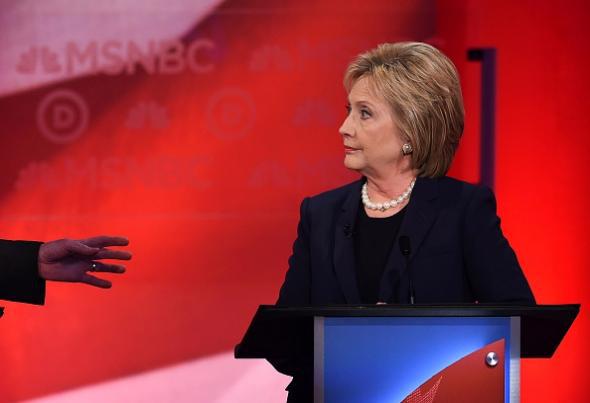Hillary Clinton, particularly because she’s running against an economic populist, has been on the defensive since the 2016 presidential campaign began about the speaking fees and campaign contributions she’s taken from Wall Street firms. At an earlier debate, she defended her actions by saying that she needed to be close to Wall Street to help it recover from 9/11. At Thursday night’s debate in New Hampshire she tried a different approach, aggressively suggesting that recent Sen. Bernie Sanders comments about her speaking fees were a sleazy form of negative campaigning:
Hillary’s comments were a follow-up to a Sanders statement about her place in the Democratic “establishment” and the role of money in politics. Said Clinton:
Yeah, I think it’s fair to really ask what’s behind that comment. Senator Sanders says he wants to run a positive campaign. I’ve tried to keep my disagreements over issues, as it should be. Time and time again, by insinuation, there is this attack that he is putting forth, which really comes down to, you know, anybody who ever took donations or speaking fees from any interest group has to be bought. I just absolutely reject that, Senator. I really don’t think these kinds of attacks by insinuation are worthy of you. Enough is enough. If you’ve got something to say, say it directly. You will not find that I ever changed a view or a vote because of any donation that I ever received. I have stood up and I have represented my constituents to the best of my abilities, and I’m very proud of that. I think it’s time to end the artful smear that you and your campaign have been carrying out in recent weeks, and let’s talk about the issues that divide us.
A smear! If you’ve got something to say, say it directly [to my face]! As you can see in the clip, Sanders responded by discussing examples of corporate influence on public policy generally rather than responding directly to Clinton about her own positions.
